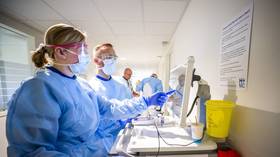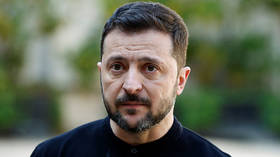Existing vaccines will hopefully protect against Omicron, WHO official tells RT
Already-introduced vaccines might hopefully be capable of shielding people from severe Covid-19 disease even against the new Omicron variant, World Health Organization (WHO) representative in Russia Melita Vujnovic told RT.
The WHO does not have any “strong indications” so far suggesting the Covid-19 strain recently discovered in southern Africa possesses a “major immune escape” mechanism, Vujnovic said on Tuesday, adding that the UN health watchdog hopes that means the existing vaccines would work against it as they do in the case of all previous Covid-19 variants, including Delta.
All the existing jabs mainly prevent severe disease where a vaccinated person contracts Covid-19, the WHO representative explained. They also reduce infection rate but are still unable to break the infection chain completely, she admitted.
They will provide a certain level of protection, including for the most vulnerable. That is the most important.
The world is yet to find out how high this level of protection would be, Vujnovic said, adding that all the vaccine producers are currently testing their products against the new strain and are to present the results of these tests shortly.
The WHO representative also said she personally supports the idea of the jabs becoming a “global good so that we can vaccinate everybody,” when asked if vaccine patents should be suspended.
The UN health watchdog still does not know just how dangerous the new strain is, Vujnovic admitted. Many Omicron cases recorded in South Africa so far involved fairly young people and Covid-19 generally tends to be not so severe when it comes to this demographic, she explained.
“We do not have reports at this moment that it is causing a more severe disease or that it is more lethal,” she said, adding, though, that the WHO does not possess enough epidemiological data to confirm that is indeed the case.
No Omicron infection clusters have so far been identified in the WHO European Region, Vujnovic also said, referring to the group comprising European nations, former Soviet states, Turkey and Israel. “Delta continues to be the predominant strain” there, she said.
So far, only a handful of Omicron cases have been reported by several European nations, including Germany, Belgium, the UK, and the Netherlands. The latest data published by the Dutch health authorities suggest, though, that the new Covid-19 variant may have arrived to the continent earlier than previously thought.














